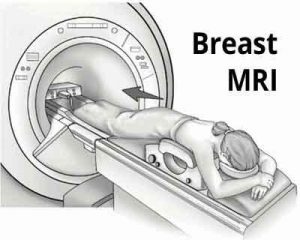- Home
- Editorial
- News
- Practice Guidelines
- Anesthesiology Guidelines
- Cancer Guidelines
- Cardiac Sciences Guidelines
- Critical Care Guidelines
- Dentistry Guidelines
- Dermatology Guidelines
- Diabetes and Endo Guidelines
- Diagnostics Guidelines
- ENT Guidelines
- Featured Practice Guidelines
- Gastroenterology Guidelines
- Geriatrics Guidelines
- Medicine Guidelines
- Nephrology Guidelines
- Neurosciences Guidelines
- Obs and Gynae Guidelines
- Ophthalmology Guidelines
- Orthopaedics Guidelines
- Paediatrics Guidelines
- Psychiatry Guidelines
- Pulmonology Guidelines
- Radiology Guidelines
- Surgery Guidelines
- Urology Guidelines
Preop Breast MRI improves surgical management of newly diagnosed Ductal Carcinoma

Preoperative Breast Magnetic Resonance Imaging (MRI) improves surgical planning and outcomes of newly diagnosed ductal carcinoma treatment, reaved a study published in Academic Radiology.
The role of preoperative breast MRI in improving clinical outcomes of ductal carcinoma is controversial due to limited data. Historically, MRI was considered a poor imaging tool to assess DCIS. In fact, numerous investigators claimed that although MRI had high sensitivity in the detection of invasive cancer, it was a poor imaging tool to identify DCIS. Many urged caution in relying on MRI to evaluate DCIS, claiming that mammography, by detecting calcifications associated with DCIS, was the preferred imaging method for DCIS detection and that Magnetic Resonance Imaging (MRI) was not sensitive in detecting DCIS. Based on the literature available at the time, the American College of Radiology’s Breast Magnetic Resonance Imaging (MRI) Practice Guidelines specifically excluded the detection of DCIS as an indication for MRI. MRI high-risk screening trials provided added support to this limitation of Magnetic Resonance Imaging (MRI) by reporting DCIS cases identified by mammography but occult to MRI.
This study aimed at evaluating the effect of pMRI on surgical management of women with core needle biopsy (CNB)-diagnosed pure DCIS at a multidisciplinary academic institution.
This retrospective study included all women with CNB-diagnosed DCIS (1/2004—12/2013) without prior ipsilateral breast cancer and who underwent surgery within 180 days of diagnosis. Patient features, number of CNBs and surgeries, and single successful breast-conserving surgery (BCS) rate were compared between pMRI and no-pMRI cohorts. A number of surgeries and single BCS success rates were also compared to published US (SEER) and Danish National Registry data.
Among the 373 women included, no clinical differences were identified between the pMRI and no-pMRI cohorts. The pMRI group experienced a higher additional CNB rate but fewer total surgeries than the no-pMRI group. Among the 245 women for whom BCS was attempted, the pMRI cohort underwent fewer mean surgeries with a greater single successful BCS rate. Compared to published data, women with pMRI who underwent BCS experienced fewer surgeries with a higher single successful BCS rate.
To conclude the study the authors wrote: "pMRI may improve surgical management of DCIS at multidisciplinary centers with breast cancer specialists."
For further reference, click on the link

Disclaimer: This site is primarily intended for healthcare professionals. Any content/information on this website does not replace the advice of medical and/or health professionals and should not be construed as medical/diagnostic advice/endorsement or prescription. Use of this site is subject to our terms of use, privacy policy, advertisement policy. © 2020 Minerva Medical Treatment Pvt Ltd